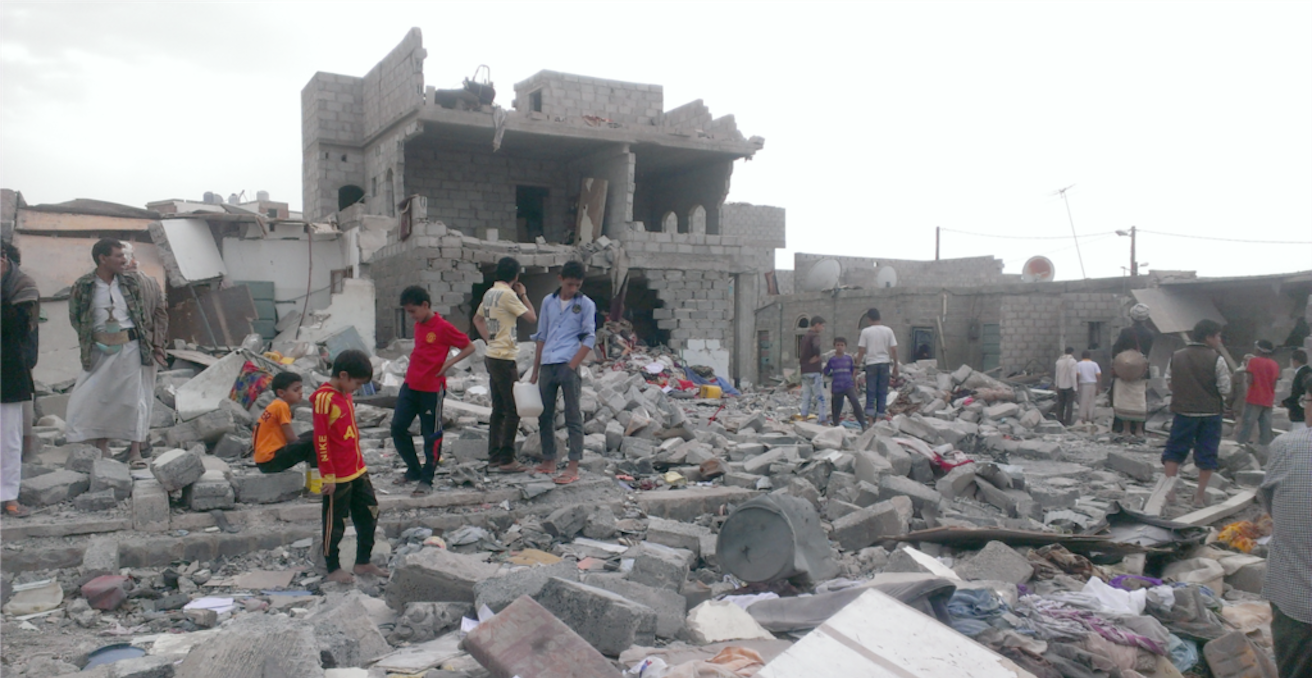Hodeida: The Beginning of the End of the War in Yemen?

The battle for the port of Hodeida is pivotal for the ongoing conflict in Yemen between the Houthis and the Saudi-led coalition.
The battle for the control of the Yemeni port of Hodeida has begun with mercenaries funded by the United Arab Emirates launching a major offensive, Operation Golden Victory, against the Red Sea port. The result could have a significant bearing on the outcome of the ongoing conflict between the Houthis, an Islamic religious-political-armed movement, and a Saudi-led coalition.
The Emirates are part of the nine-nation, Saudi-dominated coalition seeking to restore to power the government of Abd Rabbuh Mansour Hadi. Hadi was installed as president by the Saudis after the resignation of Ali Abdallah Saleh and has been under effective house arrest in Riyadh since he fled Yemen in 2015.
The siege on Hodeida
Hodeida is Yemen’s fourth largest city and the country’s major entry point to the Red Sea. Since the Houthis were driven out of the south of the country, Hodeida has become their main outlet to the outside world and the major source (around 80 per cent) of food, petroleum and aid supplies for much of the country’s population. Were Hodeida to fall to the Saudi coalition, it is feared it will further consolidate the blockade that has been in force for some time. This will put at risk the 600,000 people who live in the city.
The Saudi coalition claims the capture of the port is essential to stop the flow of arms into Yemen, which is in violation of a UN arms embargo. A UN panel of experts found last November that there was no evidence to support the claim and that Saudi Arabia is deliberately blocking the delivery of humanitarian aid. Amnesty International has accused both the coalition and the Houthis of interfering with the delivery of aid and vital supplies.
Hodeida has been under siege for some weeks but the ferocity of the new attack on the city has been such that in early June the Red Cross decided that it had no choice but to withdraw from the city. This left the population without the vital assistance that the Red Cross had been providing. The United Nations has expressed concern that as many as 250,000 people are in direct danger from the fighting. Already 30,000 people are estimated to have been displaced.
UN and NGO representatives accuse both sides in the conflict of having perpetrated serious violations of human rights. The coalition has been accused of breaches of international law (including war crimes), such as indiscriminate arbitrary detention, torture, enforced disappearances, the imposition of a blockade and the closure of Sana’a International Airport. On 26 June this year, a UN report found that the coalition was responsible for most of the deaths and injuries of Yemeni children in 2017 and that most of these were the result of airstrikes. The Houthis have been accused of firing missiles indiscriminately at Saudi population centres and it is feared they might try to use the Hodeida population as human shields. Both sides have been accused of recruiting child soldiers.
Likely Houthi defeat in Hodeida
Operation Golden Victory began with the Emirati forces’ capture of Hodeida airport, which opened the way to the city. This part of Yemen is characterised by a narrow coastal plain backed by high and rugged mountains. The Houthis have shown themselves to be masters of fighting in mountainous areas but have been vulnerable in the lowlands where the coalition has been able to bring superior force to bear. Should the city fall, the Houthis would be able to continue the fight but the loss would weaken their overall military position. It would be a major strategic, financial and symbolic setback.
It is hard to imagine how the Houthis can hold out in Hodeida. The coalition can deploy vast resources, including between 20,000 to 25,000 fighters, equipped with armoured vehicles and supported by fighter jets and Apache helicopters. For their part, the Houthi defenders are believed to number between 5,000 and 10,000 men, many of whom are new recruits. The experienced and committed Houthi fighters are thought to number only a few thousand men. However, the Houthis may well prove to be difficult to dislodge.
Recent experience in the Middle East has shown that urban conflict is particularly difficult for regular forces. Islamic State demonstrated in Mosul and Raqqa, for example, how a relatively small number of dedicated fighters could hold up vastly superior forces.
The beginning of the end of the conflict?
The United Nations has been working hard to avoid catastrophe. The UN Special Envoy to Yemen, Martin Griffiths, has pursued a plan that would see the Houthis cede control of the port to UN agencies. It would also see the Houthis gain a more influential role in the country’s government, which was a major grievance when they launched their attacks on the government in 2014. The Houthis have indicated that they are willing to consider the arrangement as they clearly recognise the unpromising nature of their position. The coalition, however, has been unwilling to contemplate any arrangement that does not result in the complete expulsion of the Houthis from the city. This is consistent with the coalition’s insistence on terms that are impossible for the Houthis to accept: withdrawal from all gains made since the war started, surrendering their arms and restoration of Hadi as president.
The coalition sees the military defeat of the Houthis as the way to a political solution. In that, it is supported by the United States, France and the United Kingdom, which have worked to prevent any substantive action on the part of the UN Security Council. In this latest offensive, the coalition seems to have the support of the major Western nations. Griffiths’ prospects for success do not seem promising.
The coalition is confident of driving the Houthis out of most of the city in a relatively short space of time. One Emirati spokesman suggested that the city could be captured without disrupting humanitarian supply lines or directly risking the lives of people living in the city and surrounding areas. He forecast that the operation could be completed in days, rather than months. This may prove to be optimistic and, while the Houthis may eventually be forced to withdraw, the loss may set the scene for an even longer conflict as the coalition forces attempt to move into areas more favourable to the Houthis.
It is important to note that while the focus of Western attention has been on the Houthis – largely because of the coalition’s exaggerated claims of Iranian and involvement with Hizballah, an Islamist militant political party – the group is not the only force in the way of the Saudis’ goal of reimposing Hadi as president. With the collapse of the always fragile central government, numerous areas of the country have established semi-independent mini-states, which may resist the government’s return. Many of these are based on tribal groupings but Al-Qaeda is also a significant player.
As long as the Saudi coalition insists on a return to the situation before Hadi’s expulsion from Yemen, the country is unlikely to see real peace for the foreseeable future.
Dr Anthony Billingsley is a Lecturer of International Relations at the School of Social Sciences, Faculty of Arts and Social Sciences, UNSW.
This article is published under a Creative Commons Licence and may be republished with attribution.





